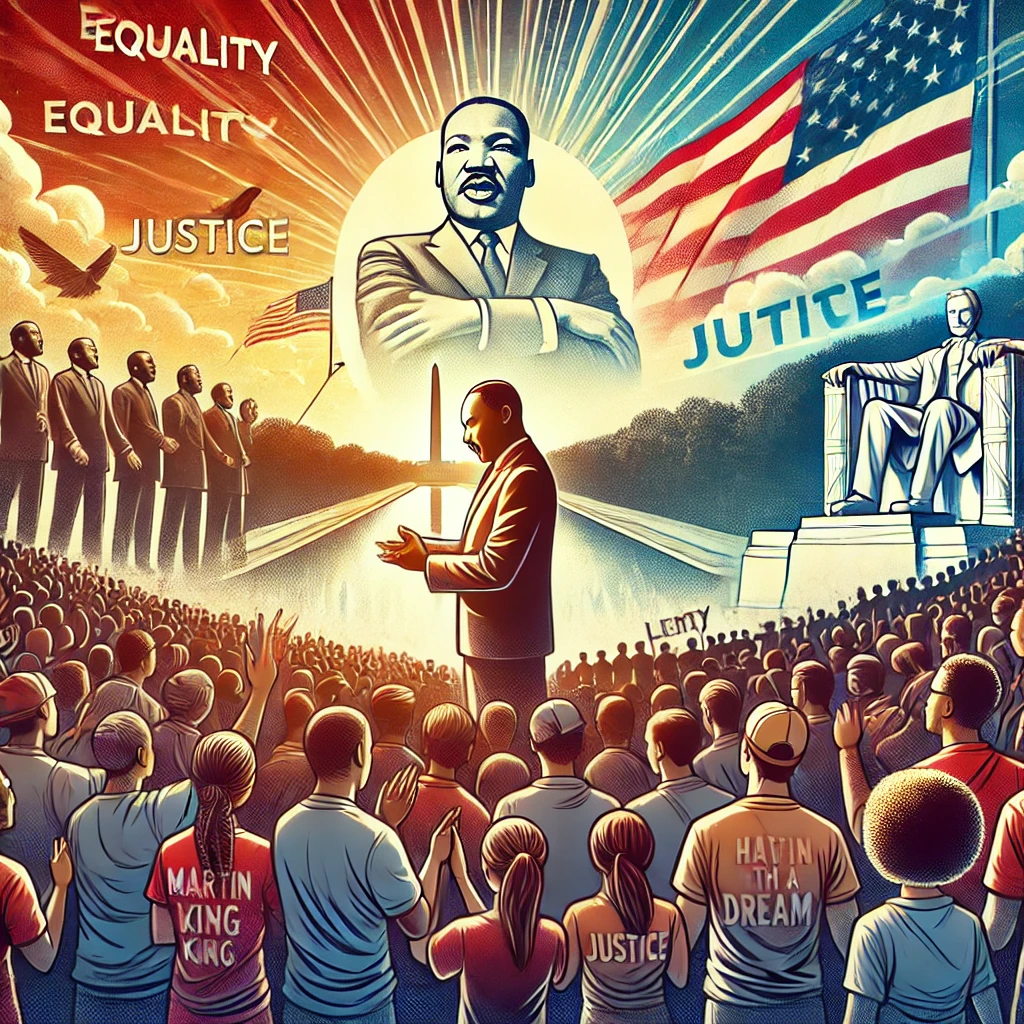Dr. Martin Luther King Jr. Day: Honoring the Legacy of a Civil Rights Icon
Dr. Martin Luther King Jr. Day is a federal holiday observed annually on the third Monday of January, honoring the life and legacy of Dr. Martin Luther King Jr., one of the most influential figures in the fight for civil rights in the United States. This day serves as an opportunity for Americans to reflect on the principles of equality, justice, and nonviolent activism that Dr. King championed throughout his life. His dedication to ending racial segregation and discrimination has left an indelible mark on the fabric of American society, and his message continues to inspire movements for justice around the world.
Who Was Dr. Martin Luther King Jr.?
Born on January 15, 1929, in Atlanta, Georgia, Dr. Martin Luther King Jr. was a Baptist minister, activist, and leader in the American Civil Rights Movement. He rose to prominence in the mid-1950s, leading nonviolent protests to challenge racial inequality in a deeply segregated South. Dr. King’s approach was rooted in his commitment to nonviolent resistance, influenced by the teachings of Mahatma Gandhi and his Christian faith.
King is best known for his leadership in pivotal civil rights actions such as the Montgomery Bus Boycott in 1955 and the March on Washington in 1963, where he delivered his iconic “I Have a Dream” speech. This speech, which envisioned a world where people would “not be judged by the color of their skin but by the content of their character,” became a rallying cry for the Civil Rights Movement and remains one of the most celebrated speeches in American history.
The Significance of Dr. Martin Luther King Jr. Day
Dr. Martin Luther King Jr. Day is more than just a day off from work or school; it is a day of reflection, action, and service. This federal holiday was signed into law by President Ronald Reagan in 1983 and first observed in 1986. It was established to commemorate Dr. King’s contributions to the struggle for civil rights, racial equality, and social justice.
King’s vision of a racially inclusive society where all individuals are treated equally regardless of race, color, or background is still relevant today. The holiday encourages Americans to remember the progress made during the Civil Rights Movement, but it also serves as a reminder of the work that remains in addressing systemic racism, economic inequality, and discrimination in contemporary society.
The theme of service is also central to the observance of Dr. King’s legacy. The holiday has become known as the “Martin Luther King Jr. Day of Service,” where individuals are encouraged to engage in volunteer activities that strengthen their communities and promote justice and equality. This reflects Dr. King’s belief that “life’s most persistent and urgent question is, ‘What are you doing for others?’”
The Achievements of Dr. Martin Luther King Jr.
Dr. King’s impact on American society is immeasurable. His leadership led to significant advancements in civil rights legislation, including the Civil Rights Act of 1964, which outlawed segregation in public places and banned employment discrimination on the basis of race, color, religion, sex, or national origin. The Voting Rights Act of 1965 was another landmark achievement, prohibiting racial discrimination in voting practices.
In 1964, Dr. King became the youngest recipient of the Nobel Peace Prize, in recognition of his tireless efforts to achieve racial equality through nonviolent means. Despite his many accomplishments, Dr. King faced significant opposition and hostility from those who sought to maintain the status quo of racial inequality. Tragically, his life was cut short on April 4, 1968, when he was assassinated in Memphis, Tennessee, at the age of 39. His death sent shockwaves throughout the nation but solidified his status as a martyr for the cause of justice.
Continuing Dr. King’s Legacy Today
Dr. Martin Luther King Jr.’s message of equality and justice transcends time. While much progress has been made since the 1960s, many of the issues Dr. King fought for still resonate in today’s struggles against racial inequality, police brutality, and economic disparity. The Black Lives Matter movement, for example, draws on the principles of nonviolent resistance that King advocated, continuing the fight against racial injustice.
Observing Dr. Martin Luther King Jr. Day allows us to revisit his teachings and reflect on how we can contribute to a more just and equitable society. Whether it’s through engaging in community service, educating ourselves on issues of social justice, or advocating for change, there are many ways to honor Dr. King’s legacy.
Conclusion
Dr. Martin Luther King Jr. Day serves as an annual reminder of the power of nonviolent protest, the importance of standing up against injustice, and the ongoing struggle for racial equality. Dr. King’s life and legacy continue to inspire millions of people worldwide to work towards a society that upholds the values of justice, fairness, and humanity. As we commemorate this holiday, let us remember that his dream is not yet fully realized, and we all have a role to play in making it a reality.
Through education, action, and service, we can honor Dr. King’s memory and contribute to building the just world he envisioned.

